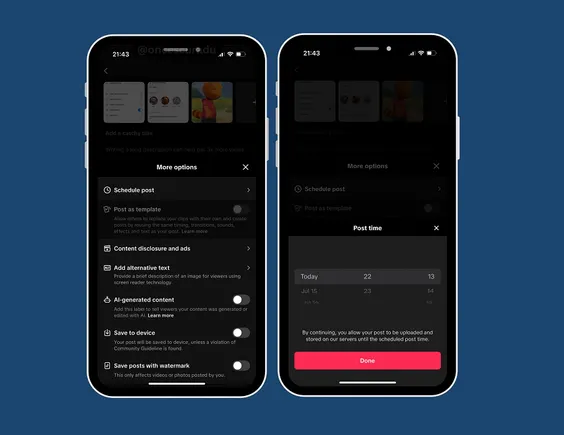Turnaround Time for SEO Projects: How Agencies Set Expectations
As an agency owner, you’re constantly navigating the competitive landscape of securing screen time for your clients’ websites. The competition is fierce, with countless websites vying for users’ attention. The internet’s exponential growth, especially since the pandemic, has resulted...

As an agency owner, you’re constantly navigating the competitive landscape of securing screen time for your clients’ websites. The competition is fierce, with countless websites vying for users’ attention.
The internet’s exponential growth, especially since the pandemic, has resulted in more businesses establishing an online presence to sell their products and services. This surge means your clients’ audiences have more options than ever before.
Your primary goal is to ensure your client’s websites stand out and rank higher on Google, capturing the target audience’s attention through effective SEO strategies.
The key to delivering a faster ROI for your clients is implementing the right SEO strategies promptly. However, managing hundreds of client websites simultaneously means each client expects rapid results. That’s why your SEO agency must set clear expectations about turnaround times with your clients, ensuring they understand the process and timeline for achieving their desired outcomes.
In this article, we will discuss the major factors influencing turnaround times for SEO projects and how agencies can set realistic expectations to reach new SEO milestones for their clients.

Understanding SEO Turnaround Time
SEO turnaround time is the time it takes for a project to get executed. When a client comes to you with on-page, off-page or technical SEO requirements, you commit to completing the tasks within a specific deadline. That timeframe becomes the turnaround time for the SEO project delivery.
Here are the factors that influence the SEO turnaround time:
Website Complexity
An older website would have loads of content, pages, images, and backlinks. Assessing each page, finding technical issues, building a new strategy, and implementing it requires a lot of effort and time.
However, domain age and existing authority can be advantageous when doing SEO for older websites.
On the other hand, a new website, too, has its complications because you often have to build the new website’s authority from scratch. Drawing authority and credibility to your client’s site and getting it ranked on search engines increases the SEO turnaround time.
Also, if your client is targeting different locations and requires multilingual SEO, it will increase the SEO turnaround time of the project.
Current SEO Status
The current SEO status of your client’s website is another important factor that determines the turnaround time of the SEO project.
Imagine a website with no robot.txt, more broken links, low mobile responsiveness, no alt tag, and loads over 3 seconds. How much time do you think it takes to fix this website?
It certainly takes more time than what another website with fewer technical bugs and better authority takes to recover.
Plus, with the latest EEAT standards set by Google, checking the content management system, analyzing the content quality, originality, relevancy, and expertise and optimizing it would influence the SEO turnaround time.
As an agency owner, you know these are only a few. You must also analyze your client’s site in terms of backlinks, user experience, targeted keywords, site structure, and plenty more to determine its current SEO status and set the SEO project turnaround time.
Competitiveness of the Industry
The higher the competition, the longer it takes to show SEO progress. Higher competition means that keyword difficulties will be high.
Plus, without building significant authority, fetching higher SERP standings for your client’s website may not be possible.
So, you would opt for advanced and aggressive strategies, including frequent content updates, extensive link building, technical enhancements, etc., for your client’s website based on what it exactly requires to develop a competitive edge. Again, this will influence the turnaround time of the SEO project.
Scope of the Project
Another important aspect that determines the SEO turnaround time would be the project’s scope.
Each client may have unique expectations regarding the outcomes of their SEO project. Your client may require increasing organic traffic, improving their rankings or boosting their conversion rates.
Each goal requires a different strategy and SEO turnaround time.
Once you’ve fixed the goal, you’ll start identifying the tasks you’ll have to perform from different aspects to achieve it.
Based on the above-given factors, you’ll plan your on-page, off-page, technical SEO, content strategy, resources, and budget. That plan will determine the SEO turnaround time for the project.
For example, if your client quotes for a lesser budget, you may have to limit the resources you allocate for that particular SEO project to make sure that your profits are not affected. As a result, the SEO turnaround time will increase.
Conversely, if they have a generous budget that allows you to put more resources on the job, the turnaround time can be considerably reduced.
Typical Phases of an SEO Project
Now that you know the factors influencing the SEO turnaround time, let’s look at the SEO project timeline.
Initial Audit and Analysis
The initial audit and analysis of your client’s site sets the foundation for the project and gives you a clear idea about its complexity and current SEO status. However, this initial audit should take no more than two weeks. Let’s discuss each task you’ll conduct at this phase in detail.
Site Audit
During this phase, you’ll conduct a site audit using tools like SEMrush, Ahref or Screaming Frog. That report would give you an idea of the level of effort required.
Make sure you also conduct a manual audit to pinpoint even the smallest of issues with your client’s website. Here, you’ll closely examine everything from website structure to alt tag and collect every detail to plan a long-term SEO strategy.
Competitor Analysis
Once the site audit is done, you hop into competitor analysis.
Competitor analysis helps you in Identifying the strengths and weaknesses of your client’s competitors. This will give you a better understanding of your client’s business landscape, their current market standing and what they need to beat their competitors in terms of SEO.
You conduct competitor analysis following the below parameters:
Keyword analysis Content analysis Backlink analysis Technical analysisThis analysis allows you to identify potential gaps between your client and their competitors in terms of keywords, backlinks, content and more. Each gap you identify is a fresh opportunity for your client and focusing your SEO efforts on areas that need improvement can help bring remarkable results for your client.
Keyword Research
After the initial audit and competitor analysis, you do keyword research, one of the most time-consuming tasks.
Based on the client’s goal, you’ll choose keywords with high volume and low difficulty. You’ll choose a mix of long—and short-tail keywords.
As an agency, when you’re busy working on your existing clients’ projects, it can be difficult to manage time spent on the newly onboarded project.
Even if you do so, you may miss out on some golden keyword opportunities if your resources can’t spend sufficient time on the new projects while simultaneously managing SEO activities for your existing clients.
However, you need to onboard new clients and expand your client base to grow your agency in the long run. That’s why hiring a reputed white-label SEO agency like Stan Ventures to handle these monotonous tasks is a good option.
Doing so can save time and allow you to focus on other core SEO activities for your clients.
Strategy Development
Here comes the best and hardest part: strategy development.
After understanding all the website complexities, technical enhancements, page counts, and competitor performance, you’ll build a long-term SEO strategy for your client.
This phase will take no more than two weeks. Let’s examine the key activities in this phase in detail.
Goal Setting
Goal setting is vital because it sets the narrative of the project.
The clients may have unrealistic expectations, but you must point out the technical difficulties, bring them to reality, and set realistic expectations.
Most agencies agree to those unrealistic expectations, thinking they might miss out on the client. In the end, they fail to achieve those goals, get the client unsatisfied and lose them permanently.
Plus, when you have a long list of clients in the pipeline but limited resources, you may miss some parameters during goal setting.
One wrong move could drastically impact the SEO turnaround time of the project and might cause client dissatisfaction.
So, when you’re short on resources, it’s ideal to hire a trusted white-label SEO agency like Stan Ventures. Our seasoned SEO strategists will help you set realistic goals and ensure you have covered all the important aspects for your client.
SEO Strategy Formulation
Once you have your goal, it’s time to formulate an SEO strategy.
Each client demands different strategies and techniques to drive desired results. Formulating a successful strategy requires careful consideration of industry trends, technical difficulties, user experience, content quality, and more.
When managing hundreds of clients, meeting a new client’s expectations wouldn’t be hard for you. But the question is, ‘Do you have the time to do that?”
Your teams are packed working on satisfying your existing clients. Now, taking on a new client and building a new strategy can demand more bandwidth. You want your clients to have the best, but your best team is packed.
In that case, collaborating with a white-label SEO agency can still deliver the best results under your banner. They carefully evaluate all the business needs and goals, formulate content clusters, and build a long-term SEO strategy.
SEO Roadmap
A clear SEO roadmap will help your client understand the process and timeline better.
Your SEO roadmap is the strategic plan that helps you and your resources visualize the SEO objectives to be achieved within a particular time frame. It gives a sneak peek into the milestones your agency has to reach on your client’s behalf.
Prioritizing the tasks is the key to creating a roadmap. You will initially focus on high-priority tasks, followed by medium and low-priority tasks.
Once that’s done, you can define the roles and responsibilities of your resources involved in the project and assign tasks to them. This will help streamline the SEO workflow and ensure that everyone in your team is working towards the same goal.
Most probably, this phase takes 1-2 weeks to complete.
Implementation Phase
Under the implementation phase, the exact strategies will be implemented as mentioned in the roadmap.
Each team will start performing those tasks. The link-building team will start with their website research, the technical SEO team will optimize technical aspects, and the content team will start creating content.
This phase usually takes 1-3 months to complete. However, the timeline may vary depending on the website’s intricacies.
Here’s a detailed breakdown of the key activities involved.
On-Page SEO
On-page SEO is crucial because it can make or break the user experience of your client’s site.
During the initial audit phase, you would point out the room for improvements on the on-page.
Your SEO team will optimize images, look for keyword density, interlinking, URL structure, apply schema markup, and more.
The content team will create unique, authoritative, informative, and credible content and strategically place keywords to showcase your client’s industry expertise and boost their search rankings.
On the other hand, your design and development team will work on the site’s design, responsiveness, and navigation based on the Inputs from your SEO team.
All of these resources from your agency’s in-house teams should come together to fetch SEO success for your client.
When your teams are already working on a couple of projects and have to work on a new one, it can put a lot of pressure on them and affect their coordination.
That pressure can impact the quality of the work and the turnaround time.
Technical SEO Fixes
Technical SEO is the most crucial part of SEO. It directly impacts the web page crawlability, indexation, and search engine ranking. There are several technical issues, from slower server response to improper implementation of robots.txt.
Fixing each technical issue takes time. You should dedicate skilled SEO experts to work on that project to deliver the best result to your client.
If your team is packed, you must form a new team to complete the project.
But the question is, can you quickly find the right talents, form a team, and complete the project within the turnaround time you promised your client?
If the technical fixes take a long time, showing progress will also get delayed. This will increase the turnaround time.
That’s why you need a white-label agency partner who can help you meet deadlines so that you can reach milestones for your clients faster and cut short the turnaround time. This way, getting the SEO tasks on or before the specified TAT can nurture good client relationships.
As an agency partner, Stan Ventures can help you do an end-to-end audit of your client’s site, pinpoint the technical issues and fix them at the earliest.
Content Creation
Without content, there is no SEO.
You need content for both on-page and off-page SEO.
Writing quality and authoritative content that meets the EEAT framework takes time and effort. If your content writers are already busy writing for your other clients, the project’s turnaround time will increase.
Pressuring your writers may result in poorly researched and low-quality content. This will affect all your SEO efforts and your reputation.
So, it’s best to outsource those requirements and get the work done. Hiring a white-label agency will enable you to provide your client with the best and most authoritative content. At Stan Ventures, we have a robust team of 100+ native content writers specializing in different niches to create content that reflects your client’s industry expertise. With us, you can conveniently scale your agency to suit the altering content production needs of your clients.
Monitoring and Optimization
Reviewing the performance and optimizing your strategy will typically be held every month. Let’s look at them in detail:
Regular Performance Review
It’s essential to review the client’s website’s performance regularly.
During the implementation phase, you’ll fix many technical issues based on priority, and each fix will impact the performance.
Likewise, you’ll optimize existing content and add new content to the website.
So, it’s crucial to know how your changes have impacted your client’s website’s performance.
If it’s good, fine, but if it’s bad, you have to tweak your strategy. If regular monitoring and report creation adds too much to your existing workload, your white-label partner will handle it for you.
At Stan Ventures, we create customized white-label SEO reports, which you can just rebrand and present to your clients to show progress.
Link Building
Link building is one of the hardest but most important tasks for SEO.
Your agency must look for quality, relevant websites with high DA every month to build links for your clients.
Shortlisting authoritative sites specific to your client’s niche and reaching out to bloggers to acquire backlinks can be a monotonous and time-consuming process. Outsourcing link building for some of your clients to a reputed white-label SEO service provider can free up some time for your resources and pay equal attention to all your clients.
With a massive inventory of 25,0000+ blogs, Stan Ventures can help you secure high-quality contextual backlinks to your client’s site. It doesn’t matter what your client’s niche is; our link-building experts can acquire powerful backlinks for them using a 100% manual outreach strategy.
Setting Realistic Expectations with Clients
The primary reason for clients leaving is because of unrealistic expectations.
The clients will always have bigger visions and dreams, but as an agency, you know the reality. Entertaining those unrealistic visions will only result in disappointment and distrust.
To avoid that and set up realistic expectations with your clients, here are the best ways to do it:
Communicating the Process Clearly
Improper communication creates illusions.
Your client won’t have a doctorate in SEO. They may know the basics, but it’s your responsibility to explain everything in detail to avoid confusion and unrealistic expectations in the future. Here is how you can do that:
Provide a Detailed Project Timeline
Once your roadmap is ready, sit with them and explain the importance, benefits, timeline, and reason for each phase’s timeline.
It will help them understand what tasks you will perform on different timelines, preventing unnecessary questions from being raised.
Explain Each Phase and Its Duration
It is vital to explain each phase and its duration to clients.
Considering scenario changes like algorithm updates, trends, keyword ranking, etc, you would plan each phase.
So, explaining each phase and the possible obstacles you could face in detail will help your client understand the process.
For example, during phase 1, you conduct competitor research. Explaining to your client why it is important to conduct that task and what kind of impact that task will bring will help them better understand your SEO strategy for them.
Managing Client Expectations
Managing your client’s expectations in SEO projects is one of the most daunting tasks you can face when they have unrealistic expectations or vague goals.
Most clients don’t care about the process. All they care about is results. Because of the competition or their website’s condition, driving results may take time.
But when your client can’t see noticeable progress, they go bizarre. It’s your job to handle such situations and help them understand the scenario.
Here are the best ways to manage clients’ expectations:
Emphasizing the Long-Term Nature of SEO
SEO is a long game. You know it, we know it, But do you think your clients would know that?
No, they won’t. They’re investing to make profits, and they won’t have the patience to see results for every penny they spend.
There are hundreds of external factors that can prevent you from achieving your client’s desired results. Emphasizing the long-term nature of SEO and the obstacles you might face during the project can help you manage their expectations.
Explain the complexities and depth of each activity you plan to undertake and its importance. That’ll do the trick.
Highlighting Factors Impacting Timelines
If the planned tasks get completed before the timeline, it’s good, and you’ll make a good impression on your client.
Suppose it goes the other way because of uncertainties like algorithm updates, more technical issues, delays in content updates, or publishing new content. It may lead to client dissatisfaction.
So, before you start the project, highlight the factors that can impact timelines to avoid unnecessary confusion.
Regular Updates and Reporting
Always keep your client in the loop. Update them about each activity and the progress you have made.
Communicating regularly and transparently builds trust. Here are the best ways to keep your client updated:
Setting Up Regular Check-Ins
Communicate with your client and find the best time to check in regularly.
Some prefer monthly calls. Some prefer weekly calls. Some prefer bi-weekly calls. So check with your client at what interval and when they’re up for a check-in call.
Also, find a way to communicate. Some prefer connecting on a Gmeet, whereas others prefer normal phone calls.
So, find what one works best for them and follow the same.
During the call, explain what tasks were executed and how they have impacted their website’s performance.
However, you can’t always expect growth. Sometimes, there will be a dip in the results. Explain the reason behind the dip and your planned activities to overcome it.
Sharing Progress Reports and Analytics
Your clients will ask for a progress and analytics report even after a detailed call. Don’t let them ask for it. Instead, share the report before they ask. It strengthens their trust.
For reporting, you can use tools like SEMrush or Ahrefs, which will do most of the heavy work and provide you with a detailed report.
If you want to add more details to the report, ask your team to create one that contains all the details.
White Labeling to Optimize Turnaround Time
An agency outsources its work to individuals or other agencies to finish the work before the turnaround time, and reporting under its brand is called white labeling.
Businesses seek reputable and skilled SEO agencies like yours to promote their brands online. However, most agencies lack the resources or time to onboard new resources.
But who would be interested in losing the additional income and profits?
When your agency doesn’t have enough resources to manage SEO projects from new clients, you end up overburdening your existing resources. This will have a negative impact on turnaround times while affecting the quality of your SEO deliverables.
As a result, the reputation and credibility you’ve built over the years will vanish in minutes.
Is there any alternative approach?
Yes, you can expand your in-house team, but the problem is, “Are they qualified enough to handle your new SEO projects effectively? And will they be able to deliver the result on time?” That’s a million-dollar question. Most importantly, expanding in-house will cost you a lot.
That’s where a white-label SEO agency comes to your aid. Let’s look at the benefits of white-label SEO in detail.
Benefits of White Labeling for Maintaining Turnaround Times
White-label SEO service is a strategic way to deliver high-quality service and results to your clients on or before the turnaround time.
Here are the benefits of white labeling for maintaining turnaround times:
Access to Specialized Expertise
First and foremost, the success of an SEO project relies on specialized expertise.
From setting realistic goals to implementing strategy, specialized expert support is needed in each phase of the project.
If you’re expanding your in-house team, finding a specialized expert in the respective fields – keyword research, SEO analysis, content marketing, copywriting, etc. – will be tedious and time-consuming.
But a white-label SEO agency will always have a team of experts ready at your service.
No matter your phase and requirements, they will ensure you get only the best work.
As a seasoned agency partner, Stan Ventures has a team of 200+ SEO specialists and 100+ content experts to cater to the scaling SEO needs of your agency. We offer every white-label service, from on-page to off-page SEO, without sacrificing on quality while aptly meeting the turnaround time you promise your client.
Scalability of Resources
As an agency, you may have to scale up or down depending on the specific needs and timelines of each SEO project. That’s why outsourcing SEO is smarter than expanding your in-house team pointlessly. Also, investing in premium SEO tools can exceed the budget you’ve set for the client.
White-label SEO agencies like us have access to top and advanced SEO tools and technologies, such as SEMrush, Ahrefs, Grammarly, Screaming Frog and more, to complete tasks.
So, each piece of data we collect and work on will be precise and accurate.
Regarding scalability, we have extensive specialized expertise in different areas of digital marketing. This allows us to take on more clients without compromising the quality of work or increasing the turnaround time.
Plus, the availability of resources enables us to scale up our efforts even when the demand is high, still ensuring the project is done before the turnaround time.
Reduced Overhead and Faster Implementation
The biggest advantage of partnering with white-label SEO agencies is getting access to their specialized expertise.
White-label agencies like us have a standardized process and workflow, ensuring all tasks are completed swiftly without compromising on quality.
You can get it done without spending as much as you will invest in building or expanding your in-house team.
By hiring a white-label SEO service provider like Stan Ventures, you’re cutting down on the salary, benefits, training expenses, and other compensation you should offer if you hire an in-house team for new projects. Plus, our brokerage model ensures 100% transparency in terms of pricing and allows you to boost your ROI.
How White Labeling Works?
Having a White Labeling SEO agency behind your back is like having an army of soldiers ready for war. It gives you tremendous confidence to onboard new clients and grow your agency.
However, when it comes to its working, different agencies follow different processes for different services.
Here is the common process that many white-label SEO agencies follow:
Partnering with Experienced SEO Providers
Many agencies can claim themselves as reputed and experienced white-label SEO service providers, but they’re mostly newcomers desperately looking for work.
So, you must be more cautious when selecting and partnering with a provider.
Start by checking their website. Ensure it is well-optimized and meets all the new SEO standards and practices.
Look for their reviews and testimonials. ” Business owners can lie, but not their customers.” You know that! Listen to what their customers say about them and analyze the positives and negatives.
Check their case studies. Analyze the problem, the solution they offered, and how prompt they are when it comes to turnaround time.
A reputed white-label service provider won’t have anything to hide. They’ll have a transparent and ethical work process.
If you want more clarity on their ethics, question them about the following:
How do you acquire backlinks? What is your process for improving website ranking? What tools do you use? How do you charge? etcFind the red flags by asking a series of questions.
Once you’ve chosen the agency and discussed your requirements and pricing, you sign a partnership agreement containing details – pricing, service, deliverables, and other specific details agreed upon.
At Stan Ventures, we sign the Non-Disclosure Agreement (NDA) to ensure confidentiality before we get started with your SEO project.
Delegating Specific Tasks While Maintaining Control
You either build your strategy with your in-house team or partner with the white-label agency to build a strategy that aligns with your client’s goal.
Once the strategy is ready, you can delegate specific tasks to your team or hand them over to white-label SEO service providers.
It can be keyword research, on-page SEO, technical audit, backlink creation, or content creation. But, while assigning the tasks, provide detailed instructions and guidelines to ensure that the work aligns with your brand’s standards and the client’s requirements.
If you outsource it to a private label provider, stay in touch with them to ensure the timeline is followed. Schedule regular meetings to review deliverables and progress, address issues, and make necessary changes.
A white-label SEO provider like Stan Ventures will allocate an account manager to handle your SEO project and organize regular meetings to keep you informed about the progress. As for the white-label report, you can customize it by adding your brand name and style to present to your client or use the data to create a new one.
Examples of Tasks Often Outsourced in White Labeling
To complete an SEO project, you must complete several small tasks. Each task is essential and crucial to achieving your client’s desired goal.
Here are some examples of tasks that SEO agencies often outsource to white-label agencies:
Keyword Research
Keyword research is a core pillar for building an efficient SEO strategy.
It requires careful assessment to finalize a list of keywords.
Considering the time and effort it takes to pull out a long list of quality keywords that align with the goal, most agencies outsource it.
So, when a white-label agency takes on the job, it starts by understanding the business, its goal, and its target audience.
Then, the agency pulls out a long list of raw keyword data using tools like SEMrush, Ahref or Ubersuggest. Considering the client website’s relevancy, competition, domain authority, volume, KD, goals, and objectives, they would shortlist the keywords to help achieve the business goal.
Content Creation
When running an SEO agency, you need loads of content for on-page, link-building, landing pages, white papers, and more for various clients.
If the content lacks expertise, authority, or quality, then there is no use in publishing content.
This is where many SEO agencies outsource their content creation work.
With the white labeling service, the agency gets its content written by high-class professional writers who conduct rigorous research and creates content that matches the brand voice and tone of the client’s website while appealing to their audience.
However, when you’re writing content for your client, it has to be optimized for SEO, right?
The professional content writer knows where to place the target keyword and how many times it must be included to rank in the search engine.
Experienced content specialists associated with white-label agencies like Stan Ventures work meticulously to create high-quality content with keywords naturally distributed across it.
Technical SEO Audits and Fixes
It’s impossible to build an effective strategy or quote a budget without understanding the technical status of a website.
Conducting technical audits and fixing them is a most vital but a time-consuming task. Keeping a small error unfixed could create a bigger impact.
For example, a website without a Robots.txt file can cause chaos. The Google crawler will get confused and end up crawling unnecessary pages and drain your client site’s crawl budget while leaving their important pages unindexed.
This mistake could stop your client from reaching their goal. So, it is crucial to focus on even the smallest details.
That’s why most agencies outsource this crucial task to a white-label SEO agency. They will create a detailed technical audit report, prioritize each error, and fix it accordingly.
It’s best to let your white label partner handle such repetitive tasks while your in-house team manages your internal marketing activities. The white-label SEO agency will perform a detailed technical audit of your client’s site and fix it accordingly.
Link building
Link building is the most crucial and powerful technique for getting your client’s site ranked higher on search engines.
Link building impacts a website’s SEO in plenty of ways.
Improved Authority and Trustworthiness
When you acquire backlinks from more high-quality websites in your client’s niche, it acts as an endorsement that your client’s site is a reputable and reliable source of information to Google.
Thus, Google considers your client’s website authoritative and trustworthy and ranks them at the top of search engines.
Improved Search Engine Ranking
The more Google trusts your client’s website as a reliable and authoritative source, the higher Google will rank it for relevant keywords and key search phrases.
Increase in Traffic
The higher your client’s website ranks on the search engine, the more people will click on their website link. Thus there will be an increase in traffic.
Plus, search engines are just one source of traffic. When people read the backlink’s source website and click the hyperlink, they’ll get referral traffic.
Increase in Revenue
More traffic to your client’s website means more potential customers, and the more potential customers, the higher their chances of making revenue.
Increased website Metrics
The more backlinks your client acquires from reputable websites, the higher their domain and page authority will be.
A recent study conducted by Ahref found that SERP ranking is related to DA. It says that getting backlinks from high-DR pages with a do-follow link helps increase a website’s authority and ranking.
Increasing these metrics will improve your client website’s exposure and visibility.
Google has always prioritized and considered backlinks a core website ranking parameter.
Google hates low-quality, spammy backlinks. In fact, the latest June 2024 Spam update leverages SpamBrain, Google’s AI-based spam-prevention system to identify different types of spam, including link spam.
Any website that doesn’t follow Google’s Guidelines is at risk of being penalized and deranked.
Building a quality backlinks for your clients takes work. Identifying relevant and highly authoritative websites in your client’s niche, reaching out to bloggers, creating guest post content and earning backlinks to your client’s site is a tedious process altogether.
So, getting one high-quality backlink will take a lot of time and effort.
You might be working on several different projects. Suppose you have to build 50 – 100 high-quality links for each existing client in a month. In that case, onboarding a new client and building links for them would add a lot of pressure on your team.
That’s why SEO agencies like yours can outsource it to a white-label agency to build relevant, high-quality links. Since the white label agencies have dedicated link-building specialists, they can get the work done at ease for you.
Stan Ventures’ white-label link building service brings everything, including blogger outreach, high-quality content creation for guest posts and powerful link building under one banner to help agencies scale up while catering to their clients’ link building needs.
Our link building experts shortlist sites for link building based on 20+ link metrics. Most importantly, we create a tailored strategy that aligns with your client’s goals and follow the best practices for acquiring high-quality backlinks. This ensures that all the backlinks you get are efficient, and valuable to drive SEO results for your clients.
Our years of experience enable us to handle large link-building orders without compromising on quality or turnaround time, while helping our clients to scale up their operations effortlessly.
Case Studies and Examples
Showcase of Successful SEO Projects with Varied Timelines
Recently, a Utah-based marketing agency specializing in SEO, paid media, social media, email marketing, and conversion rate optimization approached our agency for building high-quality, relevant, and cost-effective backlinks.
They had requirements for 20+ websites across different industries. For each of the websites, the goal varied.
On average, we delivered 120 -150 backlinks for each client within 20 days of signing the project. Our team ensured the Utah agency had a 60% margin on each backlink. To read the entire case study, click here.
Lessons Learned from Different Projects
Such projects gave us great learning about ourselves and our potential. Here are the valuable lessons we learned over the last 15 years.
Customization is Key
Each client had different goals and needs. As they were from different domains, we couldn’t offer a one-size-fit solution for all.
Based on their goals, our team created a tailored strategy for each client that matched the Utah based agency’s workflow.
Since our team includes specialized link-build experts, we delivered highly relevant, high-quality, and authoritative backlinks within the turnaround time, that is 20 days.
Quality Over Quantity
Even though we had to deal with projects from different domains, our experts didn’t compensate on the quality of the backlinks. They set a minimum limit of 5k traffic to qualify the website. This limit has helped us nit-pick quality websites, and as a result, it improved the agency’s client’s online visibility and domain authority.
Plus, we didn’t use AI-generated content. We used our in-house content writers to ensure the quality of the content.
Cost Management
Our team set up a budget of $75 – $135 for each link, ensuring the agency maintained a margin of 60%, which was a win for us.
Within this budget, our team was able to deliver high-quality links, make our service cost-effective, and satisfy our partner by giving them a good profit.
This result allowed them to continue our relationship in the future as well.
Efficiency in Delivery
Considering long-term relationships with our clients, efficiency in delivery was vital.
From the day we signed the project, we ensured all the links would be live and delivered within 20 days. Plus, when they requested to change the link (which was low), we did it for free.
This efficient delivery and quick turnaround time enabled them to continue taking on our service.
Realistic vs. Unrealistic Expectations and Their Outcomes
To avoid confusion, we maintained steady, transparent, and regular communication with the client.
We didn’t leave room for unrealistic expectations from the start.
Now, let’s examine realistic vs. unrealistic expectations in detail.
Quality Over Quantity
Our team has shortlisted websites with a minimum of 5k traffic. On average, we got around 120 – 150 backlinks for each business. We didn’t set unrealistic expectations, like “We will offer you 300 high-quality backlinks.” We kept them in the loop, and they saw the effectiveness of each link.
Outcome:
Improved search engine ranking, higher domain authority, and enhanced client trustworthiness.
Budget-Conscious Planning
One of the Utah agency’s key goals was cost-effectiveness. So, our team worked out a budget and set $75 – $135, maintaining 60% of the margin without compromising the quality of the outcome. This method guaranteed that the project was financially viable and maintained profitable margins.
Outcome:
The agency maintained healthy profit margins while providing valuable service to its clients.
Gradual Improvement
Understanding the long SEO games, the agency and clients were aware of the initial boost possible.
Outcome:
With all sustained efforts, they saw a steady increase in organic traffic and domain authority over time.
Unrealistic Expectations and Outcomes
Immediate Results
Understanding the nature of SEO and expecting immediate results regarding organic traffic and ranking will always lead to disappointment, frustration, and distrust.
One-Size Fit
The strategy that has worked for one industry won’t work for another. This applies not only to different industries but also to the same industries. Every client needs a tailored approach based on industry-specific needs and goals.
Expecting the Work to be Done Quickly
The team needs time to research and find high-quality links. Expecting the team to get the work done quickly can lead them to burn out and make them compromise on the quality and play the numbers game.
Managing multiple SEO projects at once can be overwhelming, especially because every client expects instant results. As an SEO agency, you know pretty well that producing immediate results isn’t how sustainable SEO works. That’s why you should set realistic expectations for your clients about turnaround times.
Empty promises about quicker turnaround times do nothing except causing client dissatisfaction and ruining genuine professional relationships. This can harm your agency’s reputation and have a negative impact on your credibility.
Make sure you stop that from happening by implementing the best practices and helping your clients understand the reality about SEO turnaround times.

 Aliver
Aliver 































